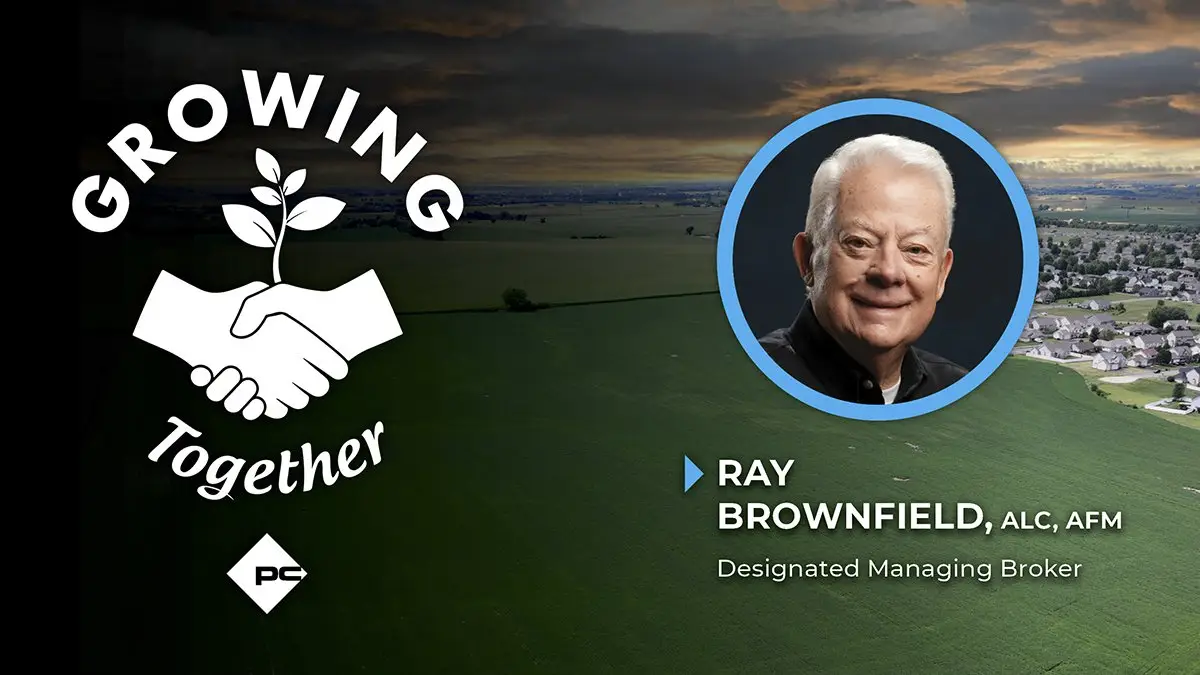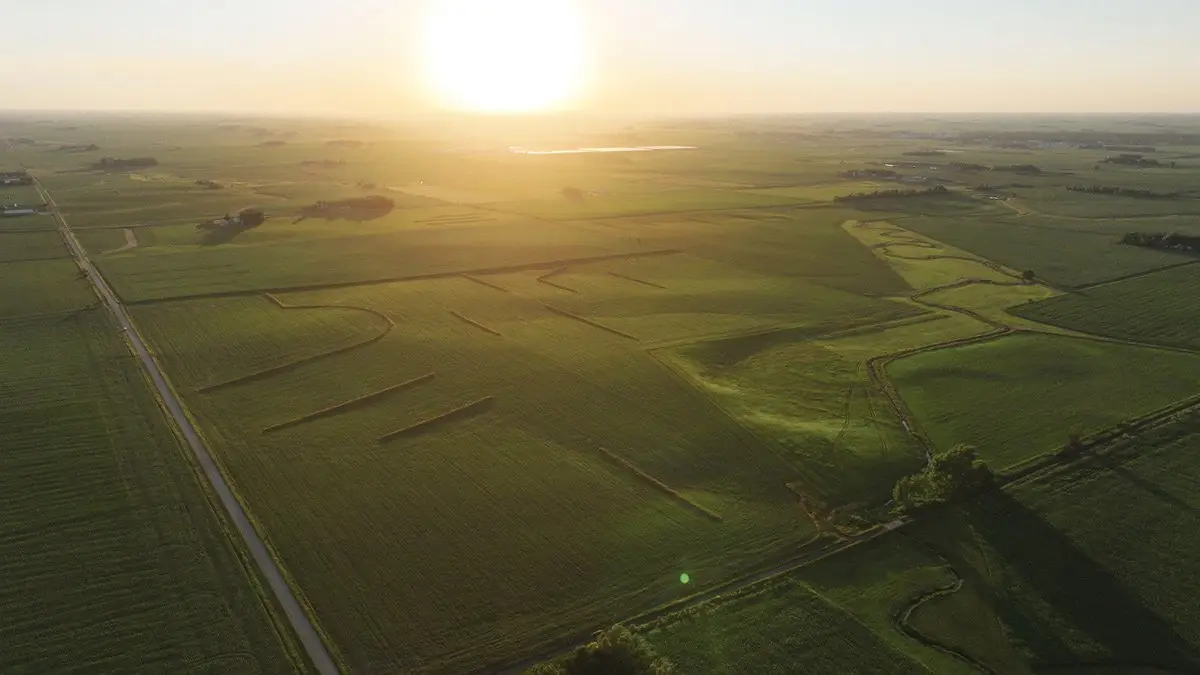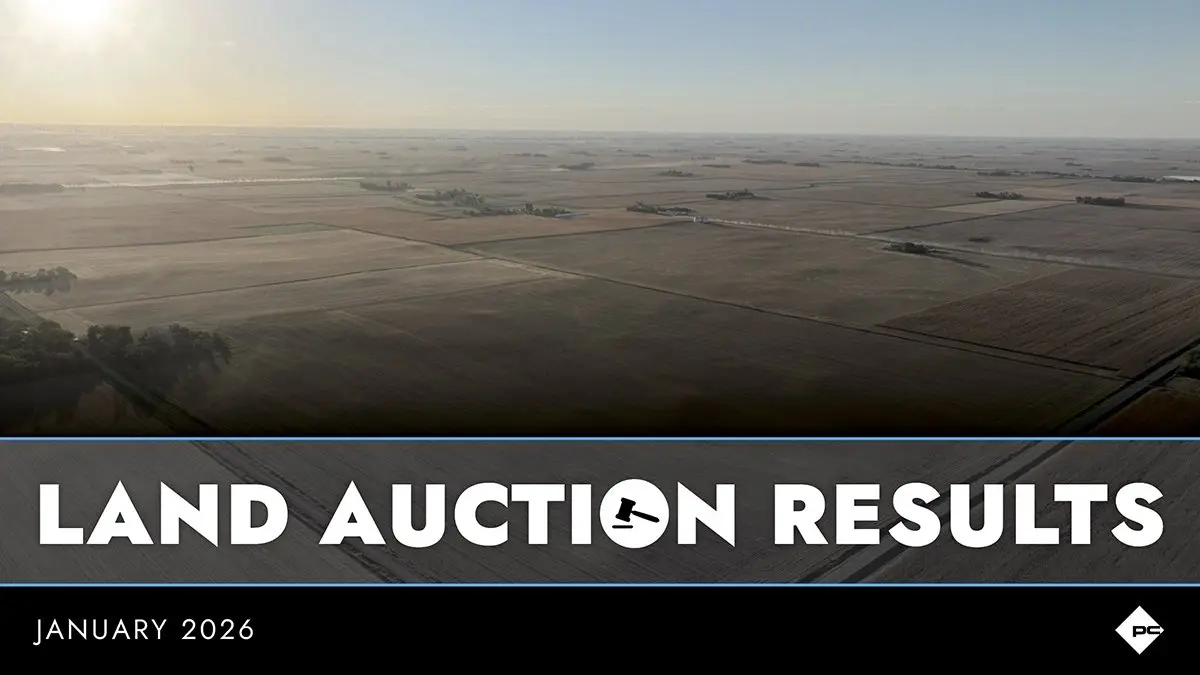Imagine this scene – you and your siblings have inherited and maintained ownership of farmland in the Midwest. A few of your siblings have brought up the idea of selling the farmland and using their proceeds from their ownership interest to enjoy retirement, pay off or down outstanding debt, or help their more immediate families. A meeting is scheduled to take place at the next holiday get together to determine the next steps. After the meeting, the consensus of you and your siblings is that it is time to sell the farmland. Once that decision has been made, there are usually several questions that get asked – Is now a good time or when is the best time to sell farmland? What is our farmland worth and do we need an appraisal? Will capital gains be owed? Should we sell the farm ourselves or hire a professional? Should we sell the farm by an auction or a traditional listing?
This scenario and line of questioning are fairly consistent and likely resonates with several Midwest landowning families, regardless of what stage of the process they might be in and whether or not the farmland will ultimately be sold or remain in the family long term. But, when circumstances lend themselves to the sale of farmland and the question is asked, “What is the best method to sell our farm?” there is an a la carte of approaches. Landowners have one chance to sell their farm, and the desire to maximize the sale price creates more of a need for scrutiny about how to present the property to the marketplace. Most, if not all, of the farmland that is marketed and sold in the Midwest takes place via a version of a public auction or a traditional listing/private treaty negotiation.
Public Auction And/Or Online Auction:
The art of auctioneering has been a favorite pastime and career for several fast-talking and quick-witted folks that can tell a joke and sell a property in the same breath of air. Land auctions work great for landowners that want the peace of mind of a set date for the sale, a set date for the closing, and the terms of the sale are chosen by the Seller without negotiation with the Buyer. The auctioneer begins by crying the sale, and the bid price will continue higher until there is a victor. A public auction can be over in a matter of minutes and puts the onus on the participating bidder to be prepared to bid in a small window. Several years ago, online auctions started making their way onto the scene and now that COVID-19 has created a greater need for an alternative to in-person auctions, online auctions have become increasingly relevant. It is not uncommon to see online bidding incorporated as an option to place a bid as part of a public auction or for all bidding to take place online.
The argument can be made for or against online-only auctions. Online auctions still create a call-to-action to bid on a property since it’s only offered at a given time and also allows a bidder to remain anonymous and not draw attention to themselves as they might at a public auction. There is added pressure at a live auction that can either motivate a bidder to push the price higher or succumb to the pressure of a live auction and not participate. One could argue that bidding from a computer or phone screen does not create the same competitive environment as an in-person auction does, but I believe there are online-only auctions that not only create a more inviting bidding atmosphere but also yield better sales results. The short of it is, some bidders want to see who they are bidding against while others prefer not to expose themselves as bidders unless they end up purchasing the property and the transaction is made public record. The comment has been made to me that real estate agents and auctioneers are working for the Seller. This is true, but we also need to create a comfortable environment for a Buyer and offer as much of a positive buying experience as possible.
Traditional Listing/Private Treaty:
A traditional listing or private treaty farmland offering allows the landowner to maintain control of certain aspects of the sales process and negotiate with a Buyer on price, terms, and conditions of a sale. With a traditional listing, a landowner and/or real estate professional would decide to place farmland on the market and would include aspects such as the price the property will be offered at, whether it will be sold as a single tract or as separate tracts, and any terms that would be required by the Seller. Examples of terms that a landowner might include in the sale of a farm would be the requirement of a sale leaseback, contract terms, or specific closing date. A beneficial feature of the traditional listing offering is the longer timeframe a property is exposed to the market. This longer timeframe allows for land Buyers who are purchasing a property using 1031 exchange funds, certain investor clients, or those using Beginning Farmer and other loan programs. Although you don’t have the set sale date and set closing date as you would with the auction format, you do have a wider marketing window that potentially allows for a landowner to market to a larger Buyer pool.
Sealed-Bid Sale:
Sealed-bid auctions are a common way for farmland to be sold. As the number of farmland bidders has waned in recent years with the deterioration of the farm economy, sealed-bid auctions have gained popularity. With a sealed-bid auction, bidders simultaneously submit sealed bids for a property that will be opened at a given date and time. The landowner can then decide if they would like to accept the high bid, or invite the top bidders into an auction setting, or allow them to raise their bid. Other variations of this method exist, including one-chance sealed-bid auctions. One chance-sealed bids are just that, a bidder will have a single opportunity to submit an offer on the farmland being offered and will not have an opportunity to raise their bid. This puts the bidder in an inopportune position as they are bidding against themselves with no competing bidder that they are aware of. However, this process affords the landowner a potentially competitive environment because that bidder knows they have one opportunity to submit an offer to purchase the property and will most likely submit their best possible price. This type of auction seems to work best when an individual or smaller group of bidders have a strong interest in owning a property. Also, both the bidder and landowner can appreciate the privacy of the bidding process with bidders and bids received remaining anonymous to the public and competing bidders.
Conclusion:
The approach to selling your farmland really boils down to the location of the farmland, how aggressive the neighborhood is, and the quality of the farmland. Other questions to consider are if the farmland is in the future path of development or if the property has a higher and better use, such as a building or acreage site. Regardless of which method is deployed to sell your family’s farmland, the person or company you engage to work with is much more important than the method itself. Choosing a real estate agent to partner with today is challenging, especially when every company will tout their ability to maximize the sales price of your property through their aggressive marketing strategy, their connections with Buyers, and their market knowledge.
As a landowner, asking questions and checking credentials with your advisors is always a good idea and recommended. Regardless of which method is deployed to sell your family’s farmland, the person or company you engage to work with is much more important than the method itself. Peoples Company and myself welcome the opportunity to introduce ourselves, attempt to understand your family dynamic and to be a resource in whatever way possible. Steve Bruere provided insight in Successful Farming on what we see in our day-to-day, and how to sell your farmland.
Peoples Company has an experienced team of certified appraisers, brokers, and auctioneers across the country that specialize in agricultural properties. Contact Peoples Company at 855.800.5263 or email LandBrokerage@PeoplesCompany.com for additional information.







